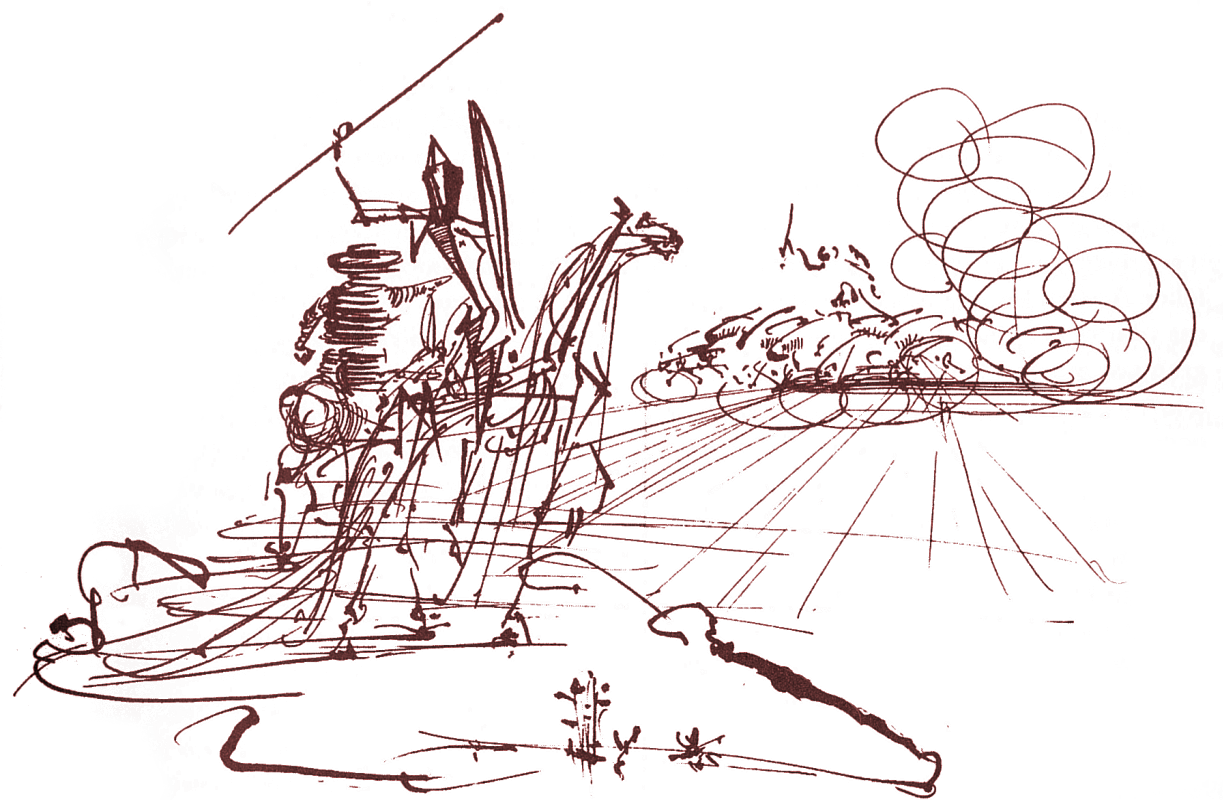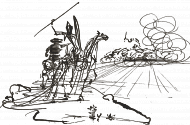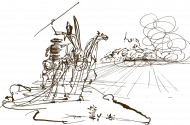Writers of political near-future or alternate-history fiction often file the serial numbers from our world, mix in chop-shop parts hocked by radicals and heretics, and call it a new thing. It can be surprising to realize that, after consuming fiction for so long, we're open to ideas we would have thought too radical if we'd considered them directly.
Phillip K. Dick's Man in the High Castle is just such a book. He takes America and puts us under the thumb of the colonizing Japanese and Germans in an alternate history where Nazis won the war. As we see American grammar bent to mimic the Japanese accent and habit of concision; as we see the Japanese fetishize American kitsch and historical glory—we realize how our own colonialism works.
But our defenses are down because we Americans are the ones colonized. All of the objections that would meet a straightforward essay about American colonization are silenced as we contemplate—through characters to whom white Americans can relate—the experience of being colonized.
This is how an alternate history can be powerful: by putting the powerful in the position of the oppressed so they can empathize with those at the barrel-end of cultural and economic expropriation. The world—the structure—of Man in the High Castle is fertile ground for growing radical ideas.
HBO's Alternate Confederate History
Game of Throne's showrunners David Benioff and D.B. Weiss have planned a world (Confederate) in which the Confederacy beat the North into a standstill and the everyday violence of slavery is still a reality for black folks. Yep. You heard that right. Two white guys are making Game of Thrones violence meets the southern slavery.
Black co-producers Nichelle Tramble Spellman and Malcolm Spellman responded to the backlash and talked about using the show as a dramatization of the current violence that affects people of color in America right now and a forum for ideas of social justice.
But is this world a good lens through which to see our own political reality more clearly?
Some have said this show will be a kind of white supremacist wish fulfillment. A reenactment of slavery. Gah. That thought makes me queasy.
If they employ GOT level violence, even if they treat themes of social justice, there will be plenty to please a white supremacist. As in: you can root for any of the kings and queens in GOT, and your side will see some victories. But I'm going to wait to see how this is done. It may be that GOT's tendency to revel in violence comes more from Martin than the showrunners.
What will not wait is a critique of the world per se.
One of the biggest stated obstacles to white people empathizing with the Black Lives Matter movement is that black folks don't have it so bad. Look at history, they say. Look how far we've come. What if black folks were still enslaved?
Unlike Man in the High Castle, in which the tables are turned and the powerful are oppressed, Confederate exaggerates the oppression of today. This invites a comparison to today's violence: aren't things so much better now? The danger is that this can desensitize white people to today's racist violence.
A world like Confederate cannot smuggle in radical ideas, instead it invites the minimization of the present. The premise is flawed. You can treat a bad premise well, but that doesn't make the premise any better.










